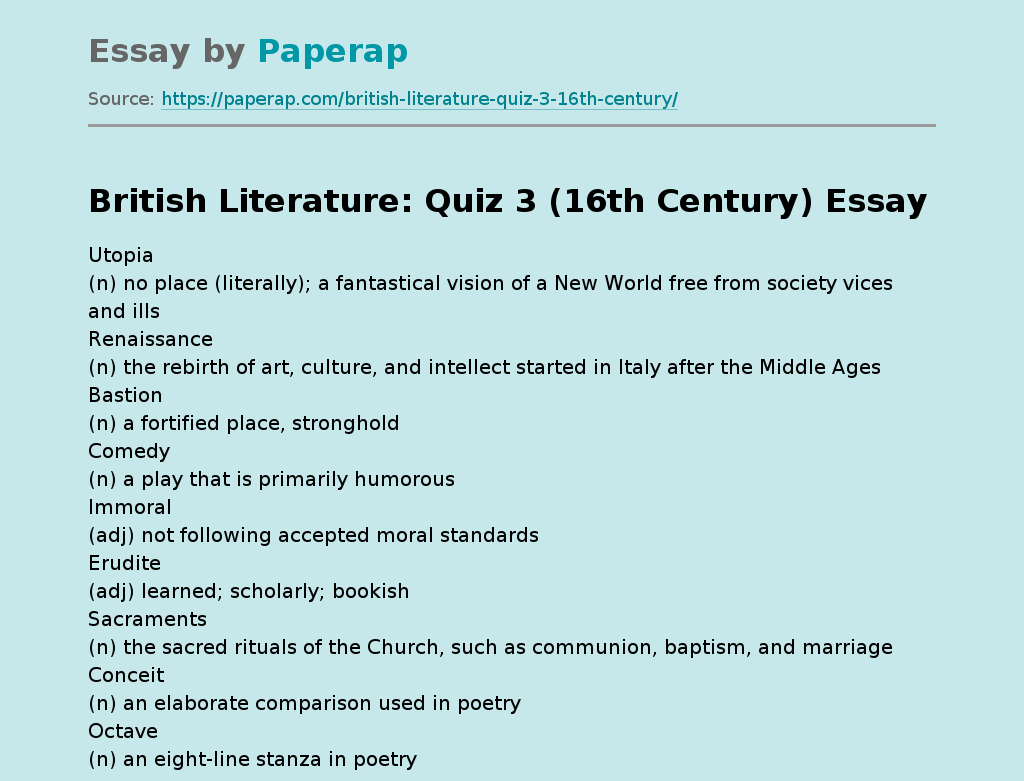British Literature: Quiz 3 (16th Century)
Essay,
Pages 2 (252 words)
Views
27
Utopia
(n) no place (literally); a fantastical vision of a New World free from society vices and ills
Renaissance
(n) the rebirth of art, culture, and intellect started in Italy after the Middle Ages
Bastion
(n) a fortified place, stronghold
Comedy
(n) a play that is primarily humorous
Immoral
(adj) not following accepted moral standards
Erudite
(adj) learned; scholarly; bookish
Sacraments
(n) the sacred rituals of the Church, such as communion, baptism, and marriage
Conceit
(n) an elaborate comparison used in poetry
Octave
(n) an eight-line stanza in poetry
Sestet
(n) a six-line stanza in poetry
Couplet
(n) two consecutive rhyming lines of poetic verse
Quatrain
(n) a four-line stanza in poetry
Elizabethan
(adj) relating to Elizabeth, queen of England, or to her era.
Pastoral
(n) a poem exalting the rural/country life of shepherds
Evangelical
(n) a person who believes in the doctrine of justification by faith alone, a Christian who shares the Gospel with others
Heresy
(n) any belief that is in opposition to the standard system of doctrine
Humanism
(n) the study of the literature, history, and art of ancient Greece and Rome
Recant
(v) to formally withdraw a belief
Secular
(adj) unconcerned with spiritual or religious things
Sonnet
(n) a poem that usually contains fourteen lines, that follow a specific rhyme scheme
Stanza
(n) a grouping of verse lines based on the poem’s rhyme scheme
Tragedy
(n) a play that dramatizes the flawed nature of man
Rhetorical
(adj) a question asked merely for effect with no answer expected.
British Literature: Quiz 3 (16th Century). (2019, Feb 05). Retrieved from https://paperap.com/british-literature-quiz-3-16th-century/
